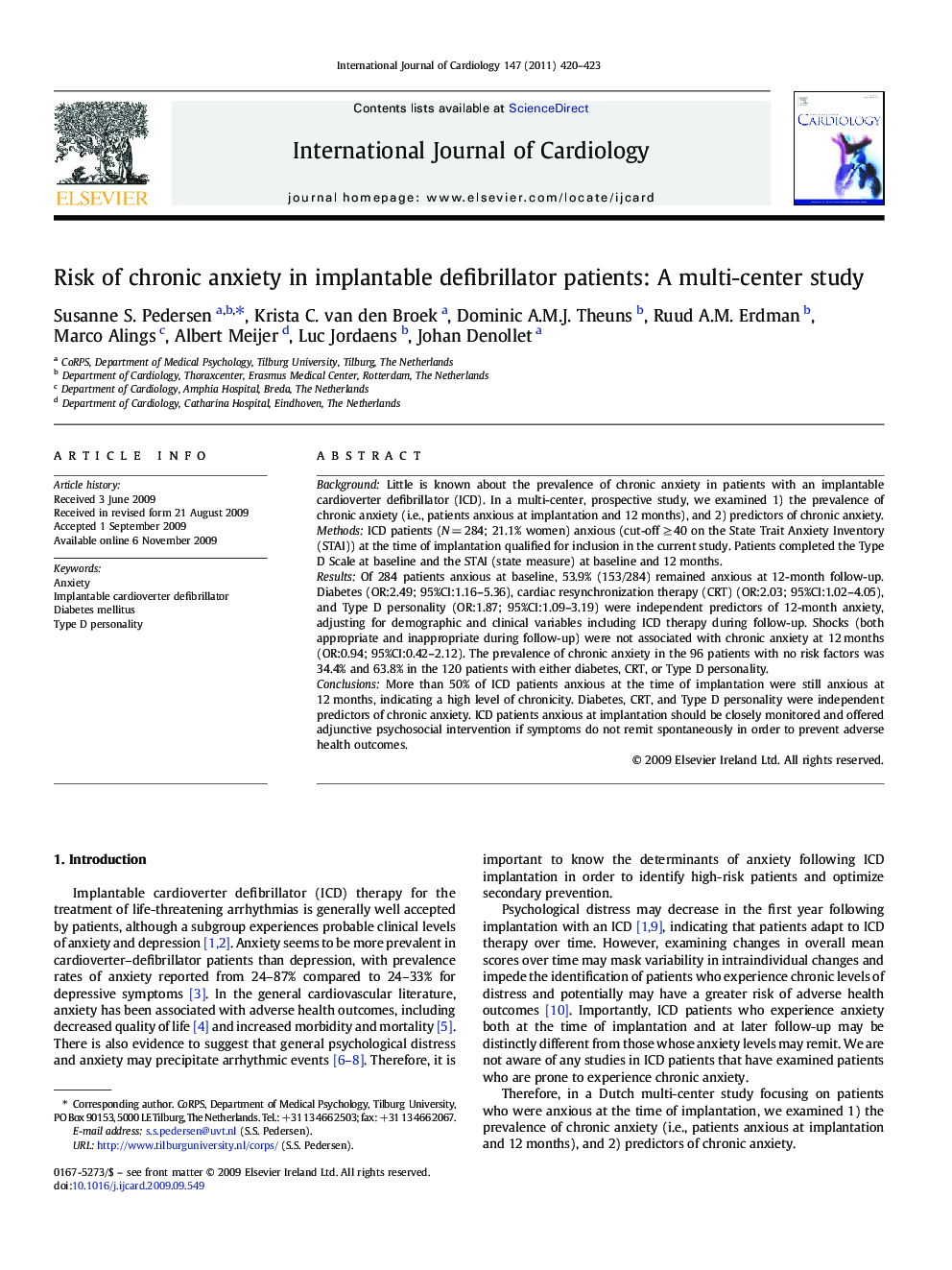| Article ID | Journal | Published Year | Pages | File Type |
|---|---|---|---|---|
| 2931359 | International Journal of Cardiology | 2011 | 4 Pages |
BackgroundLittle is known about the prevalence of chronic anxiety in patients with an implantable cardioverter defibrillator (ICD). In a multi-center, prospective study, we examined 1) the prevalence of chronic anxiety (i.e., patients anxious at implantation and 12 months), and 2) predictors of chronic anxiety.MethodsICD patients (N = 284; 21.1% women) anxious (cut-off ≥ 40 on the State Trait Anxiety Inventory (STAI)) at the time of implantation qualified for inclusion in the current study. Patients completed the Type D Scale at baseline and the STAI (state measure) at baseline and 12 months.ResultsOf 284 patients anxious at baseline, 53.9% (153/284) remained anxious at 12-month follow-up. Diabetes (OR:2.49; 95%CI:1.16–5.36), cardiac resynchronization therapy (CRT) (OR:2.03; 95%CI:1.02–4.05), and Type D personality (OR:1.87; 95%CI:1.09–3.19) were independent predictors of 12-month anxiety, adjusting for demographic and clinical variables including ICD therapy during follow-up. Shocks (both appropriate and inappropriate during follow-up) were not associated with chronic anxiety at 12 months (OR:0.94; 95%CI:0.42–2.12). The prevalence of chronic anxiety in the 96 patients with no risk factors was 34.4% and 63.8% in the 120 patients with either diabetes, CRT, or Type D personality.ConclusionsMore than 50% of ICD patients anxious at the time of implantation were still anxious at 12 months, indicating a high level of chronicity. Diabetes, CRT, and Type D personality were independent predictors of chronic anxiety. ICD patients anxious at implantation should be closely monitored and offered adjunctive psychosocial intervention if symptoms do not remit spontaneously in order to prevent adverse health outcomes.
